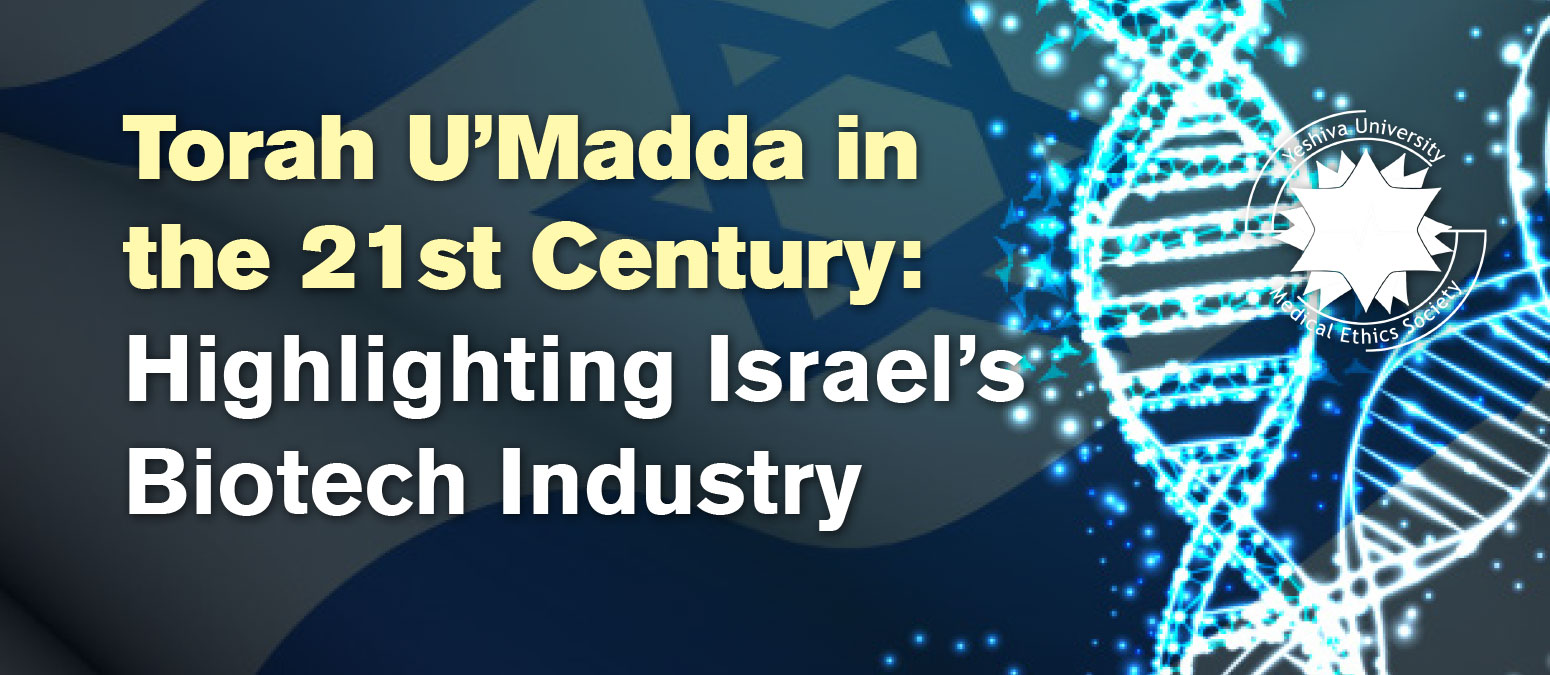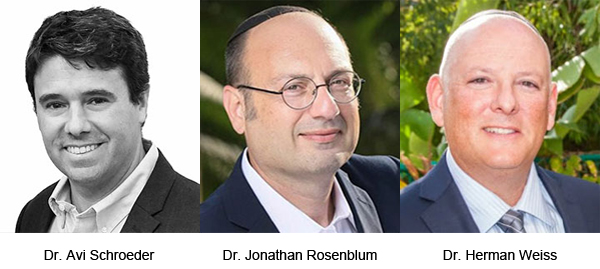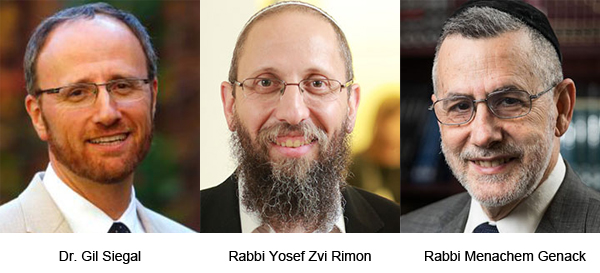Message From Our President

Dear Students, Faculty, Staff and Friends,
I am pleased to present to you this Guide to our plans for the upcoming fall semester and reopening of our campuses. In form and in content, this coming semester will be like no other. We will live differently, work differently and learn differently. But in its very difference rests its enormous power.
The mission of Yeshiva University is to enrich the moral, intellectual and spiritual development of each of our students, empowering them with the knowledge and abilities to become people of impact and leaders of tomorrow. Next year’s studies will be especially instrumental in shaping the course of our students’ lives. Character is formed and developed in times of deep adversity. This is the kind of teachable moment that Yeshiva University was made for. As such, we have developed an educational plan for next year that features a high-quality student experience and prioritizes personal growth during this Coronavirus era. Our students will be able to work through the difficulties, issues and opportunities posed by our COVID-19 era with our stellar rabbis and faculty, as well as their close friends and peers at Yeshiva.
To develop our plans for the fall, we have convened a Scenario Planning Task Force made up of representatives across the major areas of our campus. Their planning has been guided by the latest medical information, government directives, direct input from our rabbis, faculty and students, and best practices from industry and university leaders across the country. I am deeply thankful to our task force members and all who supported them for their tireless work in addressing the myriad details involved in bringing students back to campus and restarting our educational enterprise.
In concert with the recommendations from our task force, I am announcing today that our fall semester will reflect a hybrid model. It will allow many students to return in a careful way by incorporating online and virtual learning with on-campus classroom instruction. It also enables students who prefer to not be on campus to have a rich student experience by continuing their studies online and benefitting from a full range of online student services and extracurricular programs.
In bringing our students back to campus, safety is our first priority. Many aspects of campus life will change for this coming semester. Gatherings will be limited, larger courses will move completely online. Throughout campus everyone will need to adhere to our medical guidelines, including social distancing, wearing facemasks, and our testing and contact tracing policies. Due to our focus on minimizing risk, our undergraduate students will begin the first few weeks of the fall semester online and move onto the campus after the Jewish holidays. This schedule will limit the amount of back and forth travel for our students by concentrating the on-campus component of the fall semester to one consecutive segment.
Throughout our planning, we have used the analogy of a dimmer switch. Reopening our campuses will not be a simple binary, like an on/off light switch, but more like a dimmer in which we have the flexibility to scale backwards and forwards to properly respond as the health situation evolves. It is very possible that some plans could change, depending upon the progression of the virus and/or applicable state and local government guidance.
Before our semester begins, we will provide more updates reflecting our most current guidance. Please check our website, yu.edu/fall2020 for regular updates. We understand that even after reading through this guide, you might have many additional questions, so we will be posting an extensive FAQ section online as well. Additionally, we will also be holding community calls for faculty, students, staff and parents over the next couple of months.
Planning for the future during this moment has certainly been humbling. This Coronavirus has reminded us time and time again of the lessons from our Jewish tradition that we are not in full control of our circumstances. But our tradition also teaches us that we are in control of our response to our circumstances. Next semester will present significant challenges and changes. There will be some compromises and minor inconveniences--not every issue has a perfect solution. But faith and fortitude, mutual cooperation and resilience are essential life lessons that are accentuated during this period. And if we all commit to respond with graciousness, kindness, and love, we can transform new campus realities into profound life lessons for our future.
Deeply rooted in our Jewish values and forward focused in preparing for the careers and competencies of the future, we journey together with you, our Yeshiva University community, through these uncharted waters. Next year will be a formative year in the lives of our students, and together we will rise to the moment so that our students will emerge stronger and better prepared to be leaders of the world of tomorrow.
Best Wishes,
Ari Berman


 Rabbi Yaakov Glasser
Rabbi Yaakov Glasser The first portion of the program highlighted the work being done by Dr. Avi Schroeder (Professor of Chemical and Biomedical Engineering at the Technion), Dr. Jonathan Rosenblum, DPM (CEO of Rithim Life Sciences) and Dr. Herman Weiss, MD, MBA (CEO of Libra Sciences).
Dr. Schroeder is working on what he called “nanomedicines,” that is, medicine delivery systems that measure no larger than one one-thousandth of the width of a human hair. The first application he spoke about involved delivering anti-cancer agents to tumors in order to combat ovarian and breast cancers; the second dealt with lessening the pain and inflammation caused by osteoarthritis.
As he pointed out, the development of medicines like this take a very long time, but he noted that what kept him and other researchers going in this yearslong quest is “feeling rewarded that a technology that we helped invent reduced suffering and made life better.”
Next up was Dr. Jonathan Rosenblum, CEO of Rithim Life Sciences. His company has created two medical devices that can literally save lives in an instant: the ResQR CPR-aid and JoltzAED. As he described each of these inventions, he noted that “the important thing to remember is that if you’re saving one life, you save the world.”
The ResQR is described as “a revolutionary device for hands-only CPR [that] spreads the force, lowering the risk of chest fractures, with ultimate ease of use in a home or office setting.” The device is built to guide would-be rescuers to place their hands in the proper position on a prone person and use a metronome and LED light to ensure
The first portion of the program highlighted the work being done by Dr. Avi Schroeder (Professor of Chemical and Biomedical Engineering at the Technion), Dr. Jonathan Rosenblum, DPM (CEO of Rithim Life Sciences) and Dr. Herman Weiss, MD, MBA (CEO of Libra Sciences).
Dr. Schroeder is working on what he called “nanomedicines,” that is, medicine delivery systems that measure no larger than one one-thousandth of the width of a human hair. The first application he spoke about involved delivering anti-cancer agents to tumors in order to combat ovarian and breast cancers; the second dealt with lessening the pain and inflammation caused by osteoarthritis.
As he pointed out, the development of medicines like this take a very long time, but he noted that what kept him and other researchers going in this yearslong quest is “feeling rewarded that a technology that we helped invent reduced suffering and made life better.”
Next up was Dr. Jonathan Rosenblum, CEO of Rithim Life Sciences. His company has created two medical devices that can literally save lives in an instant: the ResQR CPR-aid and JoltzAED. As he described each of these inventions, he noted that “the important thing to remember is that if you’re saving one life, you save the world.”
The ResQR is described as “a revolutionary device for hands-only CPR [that] spreads the force, lowering the risk of chest fractures, with ultimate ease of use in a home or office setting.” The device is built to guide would-be rescuers to place their hands in the proper position on a prone person and use a metronome and LED light to ensure  The second portion of the program began with an in-depth explanation by Dr. Gil Siegal, MD, LLB, SJD (Director of the Center for Health, Law and Bioethics at Kiryat Ono College) about how Israel holds an intermediate position in the field of bioethics (what he called “Blue and White Bioethics,” based on the colors of the Israeli flag) between the values followed in the United States (which he cited as autonomy, beneficence, no malfeasance and justice) and Europe (following human dignity, solidarity and precaution, that is, the notion that not everything new is good). In Israel, according to Dr. Siegal, there is an emphasis on rabbinical accord, collective action, the positives of genetic research (especially when connected to procreation), the ethical call to improve the world and maintaining the image of Judaism as a positive force.
According to Dr. Siegal, this intermediate position gives Israel certain intellectual and moral advantages as it engages in scientific research that, for instance, make it a pioneer in stem cell research because it can find a balance that respects the sanctity of life while also engaging in scientific practices that “improve creation” by “saving lives and abolishing suffering.”
The final two speakers—Rabbi Yosef Zvi Rimon (Chief Rabbi of Gush Etzion, Rosh Yeshiva of Machon Lev, and Rosh Kollel at Yeshivat Har Etzion) and Rabbi Menachem Genack (Rosh Yeshiva, RIETS and CEO of the Orthodox Union’s Kashrut Division)—explained the intricate decision-making involved in considering new foods—in this case, artificial meat.
The Medical Ethics Society conference is always a highlight of Yeshiva University’s programming. Here are some past conferences:
The second portion of the program began with an in-depth explanation by Dr. Gil Siegal, MD, LLB, SJD (Director of the Center for Health, Law and Bioethics at Kiryat Ono College) about how Israel holds an intermediate position in the field of bioethics (what he called “Blue and White Bioethics,” based on the colors of the Israeli flag) between the values followed in the United States (which he cited as autonomy, beneficence, no malfeasance and justice) and Europe (following human dignity, solidarity and precaution, that is, the notion that not everything new is good). In Israel, according to Dr. Siegal, there is an emphasis on rabbinical accord, collective action, the positives of genetic research (especially when connected to procreation), the ethical call to improve the world and maintaining the image of Judaism as a positive force.
According to Dr. Siegal, this intermediate position gives Israel certain intellectual and moral advantages as it engages in scientific research that, for instance, make it a pioneer in stem cell research because it can find a balance that respects the sanctity of life while also engaging in scientific practices that “improve creation” by “saving lives and abolishing suffering.”
The final two speakers—Rabbi Yosef Zvi Rimon (Chief Rabbi of Gush Etzion, Rosh Yeshiva of Machon Lev, and Rosh Kollel at Yeshivat Har Etzion) and Rabbi Menachem Genack (Rosh Yeshiva, RIETS and CEO of the Orthodox Union’s Kashrut Division)—explained the intricate decision-making involved in considering new foods—in this case, artificial meat.
The Medical Ethics Society conference is always a highlight of Yeshiva University’s programming. Here are some past conferences: